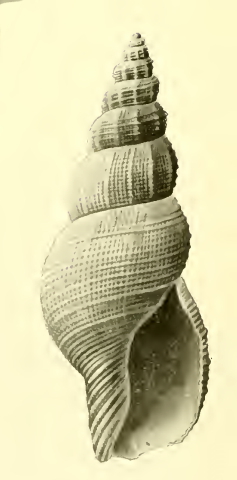Asperdaphne versivestita facts for kids
Quick facts for kids Asperdaphne versivestita |
|
|---|---|
 |
|
| Original image of a shell of Asperdaphne versivestita | |
| Scientific classification | |
| Synonyms | |
|
Daphnella versivestita Hedley, 1912 |
Asperdaphne versivestita is a type of sea snail. It's a small mollusk that lives in the ocean. This snail belongs to a group called gastropods, which includes snails and slugs. It is part of the Raphitomidae family.
Contents
About the Asperdaphne versivestita Snail
This sea snail has a shell that can grow up to 25 millimeters (about 1 inch) long. Its widest part, or diameter, is usually around 9 millimeters.
Shell Appearance
The shell of Asperdaphne versivestita is quite long and shaped like a cone. It's also rather thin. The top part of the shell has angles, while the bottom part is more rounded.
The shell is usually a creamy color. It often has a few light brown spots scattered across its surface.
Shell Structure
This snail's shell has 9 whorls, which are the spiral turns of the shell. The very first two whorls are called the protoconch. This tiny protoconch has fine spiral grooves.
As the snail grows, new spirals appear on its shell. These spirals can be different sizes. The shell also has raised lines, called ribs, that run along its surface. These ribs can make the shell look bumpy or beaded where they cross the spirals.
Near the opening of the shell, called the aperture, there are many spiral lines. The outer edge of the opening, the lip, has small teeth because of these spirals. The inner part of the opening is smooth.
The snail also has a short, wide tube called a siphonal canal. This canal helps the snail breathe and filter water.
Where It Lives
This marine snail is endemic to Australia. This means it is only found in Australia and nowhere else in the world. You can find Asperdaphne versivestita off the coast of New South Wales.
See Also

